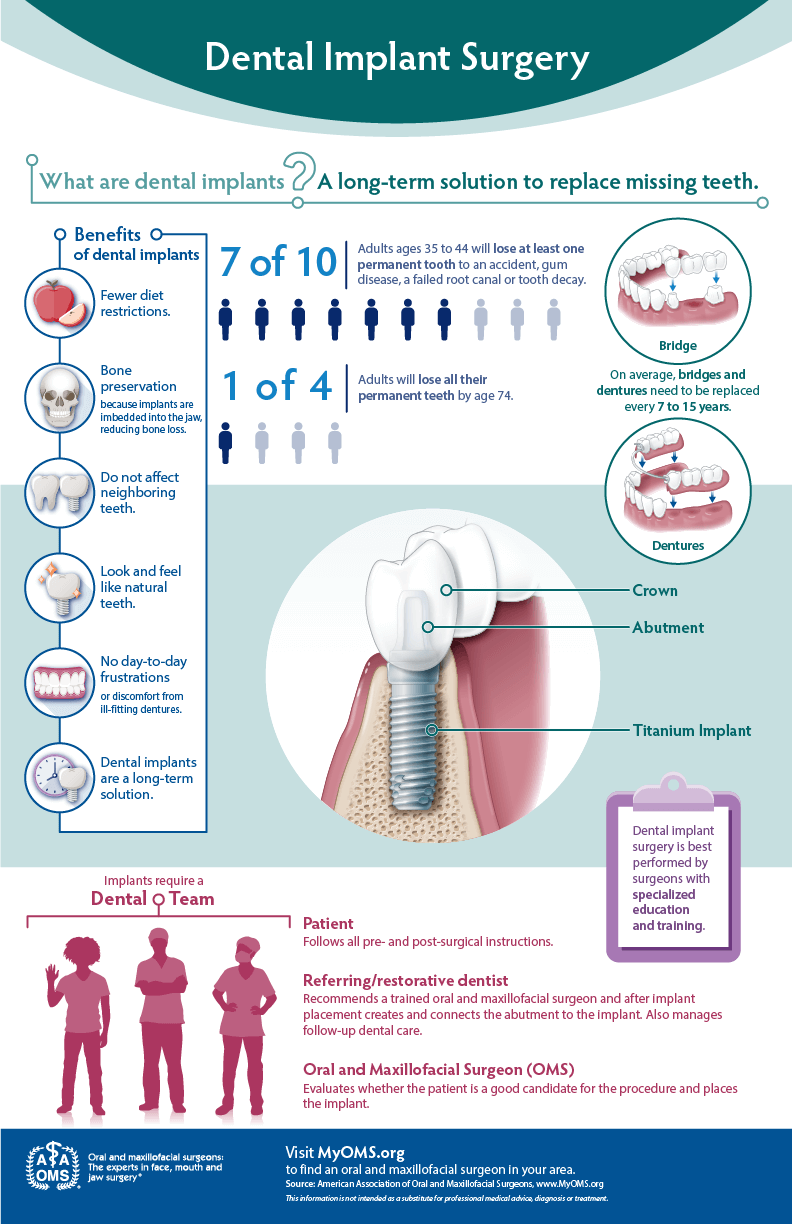
What are dental implants? A long-term solution to replace missing teeth.
Benefits of dental implants
- Fewer diet restrictions.
- Bone preservation because implants are imbedded into the jaw, reducing bone loss.
- Do not affect neighboring teeth.
- Look and feel like natural teeth.
- No day-to-day frustrations or discomfort from ill-fitting dentures.
- Dental implants are a long-term solution.
7 of 10 adults ages 35 to 44 will lose at least one permanent tooth to an accident, gum disease, a failed root canal or tooth decay. 1 of 4 adults will lose all their permanent teeth by age 74. On average, bridges and dentures need to be replaced every 7 to 15 years.
Implants require a Dental Team
- Dental Implant surgery Is best performed by surgeons with specialized education and training.
- Patient follows all pre- and post-surgical instructions.
- Referring/restorative dentist recommends a trained oral and maxillofacial surgeon and after implant placement creates and connects the abutment to the implant. Also manages follow-up dental care.
- Oral and Maxillofacial Surgeon (OMS) evaluates whether the patient is a good candidate for the procedure and places the implant.
Source: American Association of Oral and Maxillofacial Surgeons. www.MyOMS.org
This information is not intended as a substitution for professional medical advice, diagnosis, or treatment.


 Taking care of your teeth and gums as you get older can prevent problems like toothaches, cavities (tooth decay), and tooth loss. A healthy mouth also makes it easier for you to eat well and enjoy food.
Taking care of your teeth and gums as you get older can prevent problems like toothaches, cavities (tooth decay), and tooth loss. A healthy mouth also makes it easier for you to eat well and enjoy food. The portion of the jawbone that supports our teeth is known as the alveolar process. Several studies have found a link between the loss of alveolar bone and an increase in loose teeth (tooth mobility) and tooth loss. Women with osteoporosis are three times more likely to experience tooth loss than those who do not have the disease.
The portion of the jawbone that supports our teeth is known as the alveolar process. Several studies have found a link between the loss of alveolar bone and an increase in loose teeth (tooth mobility) and tooth loss. Women with osteoporosis are three times more likely to experience tooth loss than those who do not have the disease.

